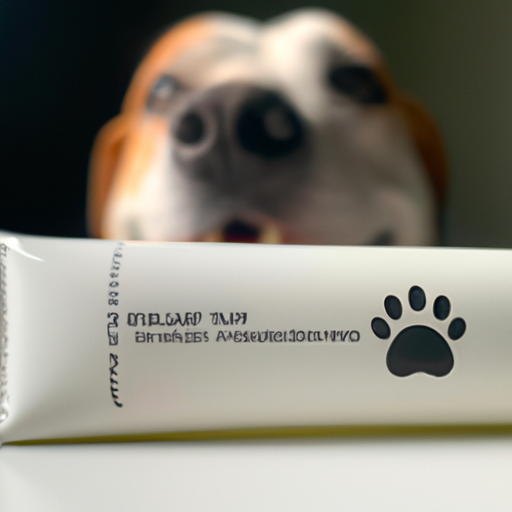As a caregiver, you understand the importance of ensuring the health and happiness of your beloved pet. When your dog gets a scrape, cut or skin irritation, your immediate instinct is to apply ointment and soothe their discomfort. But, not all ointments are created equal and using the wrong kind can potentially harm your canine friend. This article will explore safe ointments for dogs, offering insights on how to best manage your dog’s skin health.
- Table of Contents
- Understanding Canine Skin
- Common Skin Issues in Dogs
- Safe Ointments for Dogs
- Using Ointments Safely
-
Frequently Asked Questions
-
Key Takeaways
- Dogs have sensitive skin prone to various conditions.
- Certain over-the-counter ointments are safe for dogs, but not all.
- Always consult with a vet before applying any medication.
Understanding Canine Skin
The skin is the largest organ in the body, both for humans and dogs. In dogs, it serves as the first line of defense against infections and injuries. However, canine skin is much thinner than human skin, making it more susceptible to irritation and damage. It’s crucial to use products specifically designed for dogs or approved by a vet to ensure their safety and wellbeing.
Common Skin Issues in Dogs
Dogs can suffer from various skin issues. Some of the most common include allergies, hot spots, dry skin, and cuts or scrapes. Each of these can cause discomfort or pain and may require different treatments. For example, hot spots might need a cooling gel, while dry skin could benefit from a moisturizing ointment. Always consult your vet to identify the issue and recommend the best treatment.
Safe Ointments for Dogs
When it comes to ointments safe for dogs, there are several over-the-counter options available. However, these should only be used under the guidance of a vet. Here are a few generally safe options:
-
Neosporin: This antibiotic ointment can be used on minor cuts and scrapes. It should be used sparingly and kept out of reach of your dog to prevent ingestion.
-
Hydrocortisone Cream: Helpful for relieving itchy or inflamed skin, but should only be used for short periods.
-
Vitamin E Cream: Effective for moisturizing dry skin and promoting healing.
Remember, even safe ointments can cause reactions if your dog is allergic, so always observe their reaction and consult a vet if you notice anything unusual. For more in-depth information on safe topical medications, check out this guide by American Kennel Club.
Using Ointments Safely
When using ointments, there are a few safety measures to keep in mind:
- Always consult your vet before starting any new treatment.
- Apply a small amount initially to test for allergic reactions.
- Prevent your dog from licking the ointment off. Consider using a cone or other deterrent.
- If you notice any adverse reactions, stop using the ointment immediately and consult your vet.
For more tips on dog health and care, visit One Top Dog, a resource offering a wealth of information on caring for your furry friends.
Frequently Asked Questions
1. Can I use human ointment on my dog?
While some human ointments are safe for dogs, many are not. Always consult with your vet before applying any human medication to your dog.
2. What should I do if my dog has a skin reaction to an ointment?
If your dog has a reaction, such as redness, swelling, or increased itching, stop using the ointment and contact your vet immediately.
3. How can I prevent my dog from licking off the ointment?
You can use a cone or other deterrent to prevent your dog from reaching the affected area.
Conclusion
Caring for your dog’s skin health is an essential part of being a responsible caregiver. Knowing what ointments are safe for dogs and how to use them properly can help ensure your dog stays happy and healthy. Always consult with your vet before applying any new medication, and keep an eye on your dog’s skin to catch any potential issues early.
For more detailed guides on various aspects of dog care, consider checking out how to groom your dog, the importance of regular vet visits, and how to keep your dog entertained.



